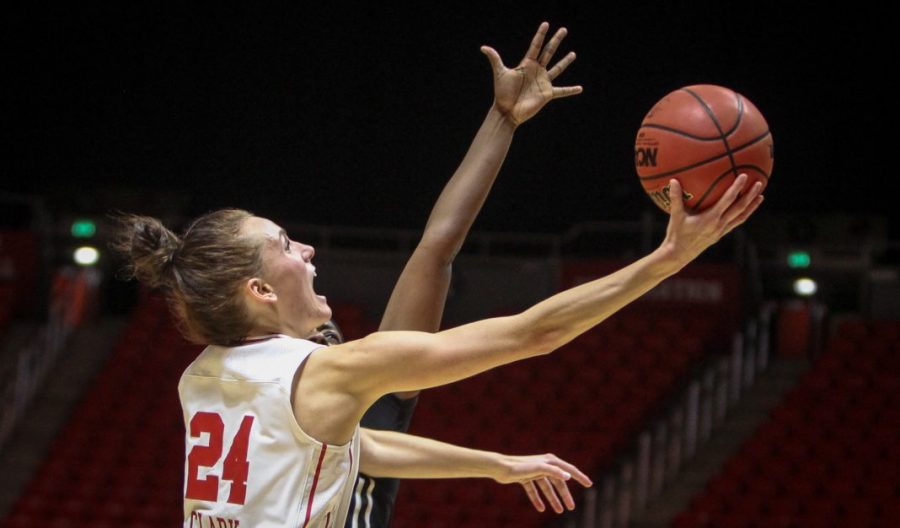Connecting the mind to the body in a positive way is crucial for athletic performance. However, in a survey conducted by the American College Health Association, half of the student-athlete respondents reported feeling overwhelming anxiety in the 12 months, and 30 percent felt depressed in the past 12 months. Mental health is not something to overlook. Recognizing this, the University of Utah women’s basketball team advocates the importance of being mindful of stress.
Maintaining good mental health can often feel impossible while balancing practice, school, work, family life and other social obligations. Finding time to take a step back doesn’t always fit into the schedule of a student-athlete, but mental health is integral to athletic performance.
“If you focus on the things that you can’t do, then it’s going to translate onto the court,” said senior Tilar Clark.
The University of Utah Athletics Department provides sports psychologists as a resource for all university teams. The staff teaches mental health practices for managing negative thoughts, anxiety, stress and depression. Such skills are tools to use in everyday life. The team has found the sports psychologists to be beneficial resources.
There is some stigma attached to people’s thoughts on mental health. Talking about mental health is not always easy, but it should not be overlooked or feared.
“You never really know what someone is going through,” Clark said. “I think it’s important to learn how to communicate those things if you’re struggling and to also see those signs as a bystander.”
Even though someone may appear to be fine, it doesn’t always mean they are okay. Mental health is real, even for the student-athletes who seem tough and resilient. Whenever Clark feels stressed, she uses physical activity as a technique to ease her mind.
“I like to go to the gym and just shoot because then I’m just focused on shooting, and I don’t really focus on anything on the outside,” Clark said.
Throughout the course of her college career, Clark has learned several ways to maintain her mental health, and she has tried to pass that on to her freshmen teammates. For some, the transition from high school athletics to the Pac-12 can be overwhelming. Clark does her best to help those who may be stressing or dealing with anxiety as a result of this transition.
“I always just try to be there this year for the freshmen,” Clark said. “I just let them know that it’s fine. You just have to keep working. I just like to pay attention to the little things.”
And the little things can make or break an athlete’s emotional state. This is why freshman guard Dru Gylten believes it is essential to take a self-care day every now and then and step away from basketball. She enjoys dedicating some time to shopping, painting her nails or watching television, all mechanisms she feels alleviate stress.
Gylten recently tore her anterior cruciate ligament (ACL), and she hasn’t been able to compete this season. Being held back from the sport she loves has been challenging for her, not only physically, but mentally.
“I take a couple minutes before practices or before a big game, and I know I can’t help the team out in that way,” Gylten said. “I just focus on what’s important and what the end goal is for myself and my team.”
d.grossman@dailyutahchronicle.com
@dg_maui


